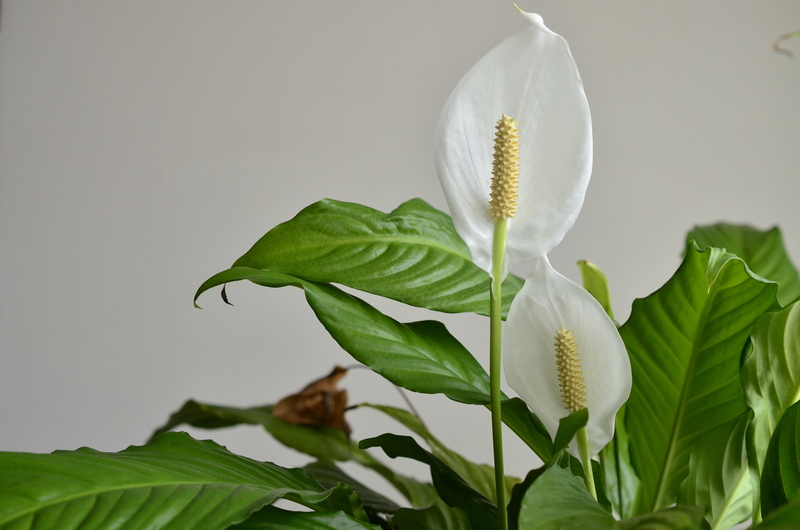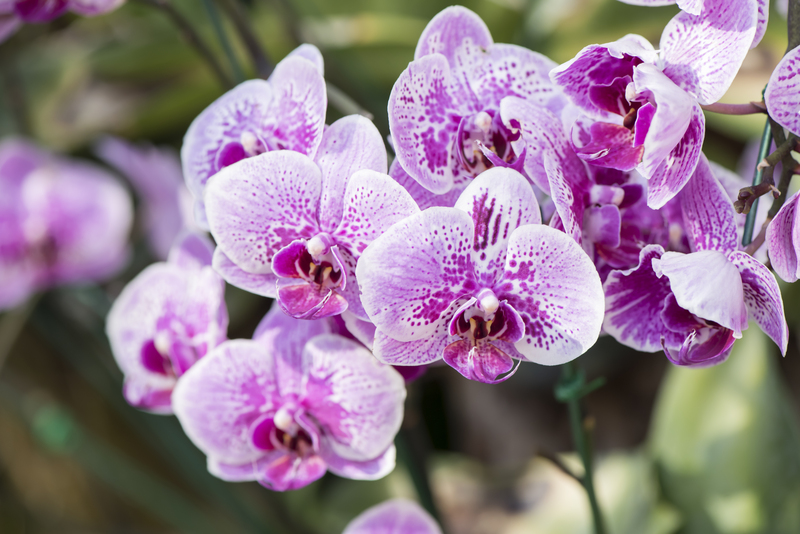Discover the Joy of Growing Your Own Fresh Herbs
Posted on 20/06/2025
Discover the Joy of Growing Your Own Fresh Herbs
Are you ready to unleash your inner gardener? There's nothing quite like stepping outside and snipping a handful of fresh, aromatic herbs to transform your cooking. Whether you're a beginner or an experienced gardener, growing your own fresh herbs is a rewarding experience packed with flavor, health benefits, and satisfaction.
Why You Should Grow Your Own Herbs
Growing fresh herbs at home offers more than just a dash of green to your space. When you grow your own herbs, you enjoy a range of benefits:
- Unrivaled freshness: Homegrown herbs have an intensity of flavor unmatched by store-bought options.
- Cost-effective: A single plant can provide a continuous supply, saving you money in the long run.
- Zero waste: Harvest exactly what you need, cutting down food waste.
- Health boost: Many herbs possess medicinal properties and add essential vitamins to your meals.
- Gardening therapy: Tending to your herb garden is a relaxing, joyful activity that enhances well-being.
- Eco-friendly: Reduces the need for plastic-packaged grocery herbs, decreasing your environmental footprint.
The Modern Trend of Home Herb Gardening
With the rise of urban gardening and indoor planting, cultivating fresh herbs at home has never been more accessible. Balcony boxes, kitchen windowsills, and even vertical wall gardens can all become lush, fragrant sources of delicious herbs.

Choosing the Best Herbs for Your Garden
Not sure where to start? Some herbs are perfect for beginners, thriving indoors or outdoors with minimal fuss. Here are the best herbs to plant for a thriving, productive home herb garden:
- Basil - Versatile, fast-growing, and perfect for Italian dishes, salads, and pestos.
- Mint - Hardy and aromatic, ideal for teas, desserts, and cocktails (contain in a pot--they spread rapidly!).
- Parsley - Feathery leaves packed with vitamins, great for garnishes and sauces.
- Chives - Delicate, onion-like flavor; perfect for eggs, potatoes, and salads.
- Cilantro (Coriander) - Essential for Mexican, Indian, and Asian cuisine.
- Rosemary - Woodsy aroma, excellent for roasting vegetables and meats.
- Thyme - Tiny leaves that pack a flavor punch; grows well in various conditions.
- Oregano - Key ingredient in Mediterranean dishes and homemade pizza sauce.
- Dill - Must-have for pickling, salads, and fish dishes.
- Sage - Earthy, perfect for stuffing, roasts, and butter sauces.
Start with two or three varieties and expand as your confidence grows. Remember, growing your own fresh herbs isn't just about practicality--it's about enjoying the sensory journey of gardening, from the scent of basil leaves to the feel of rosemary sprigs between your fingers.
How to Start Your Herb Garden: Indoors or Outdoors
Choosing the Right Location
Herbs generally require plenty of sunlight--at least 6 hours a day. Indoors, a sunny south-facing windowsill or a dedicated grow light will do wonders. Outdoors, choose a spot that gets morning light but avoids harsh midday sun, especially in hot climates.
Picking Containers and Soil
- Containers: Most herbs thrive in pots or window boxes. Ensure containers have good drainage to prevent root rot.
- Soil: Use high-quality potting mix that's rich but well-draining. Add perlite or sand for extra drainage if needed.
Sowing Seeds vs. Buying Plants
You can start herbs from seeds for a rewarding experience, or purchase young plants if you prefer instant gratification. Some herbs, like basil and cilantro, grow quickly from seed, while others (like rosemary) are easier to start with young plants.
Planting Steps
- Fill your pot with moist potting soil, leaving about an inch from the top.
- Sow seeds according to packet instructions, or transplant young plants gently.
- Water evenly, but do not over-soak. Herbs dislike soggy soil!
- Label your pots to easily identify each type as they grow.
Basic Maintenance and Care for Herb Plants
Caring for home-grown herbs doesn't have to be complicated:
- Watering: Most herbs prefer soil that is moist, not waterlogged. Let the top inch of soil dry out before watering again.
- Fertilization: Feed monthly with a diluted, balanced liquid fertilizer. Overfeeding can reduce flavor intensity.
- Pruning & Harvesting: Regular picking (never more than one-third of the plant at a time) encourages bushier growth and prevents flowering, which can make herbs bitter.
- Pest control: Watch for aphids, whiteflies, and mildew. Remove affected leaves and consider natural remedies like neem oil or insecticidal soap for infestations.
- Sunlight: Rotate pots weekly for even growth if growing indoors.
Special Tips for Indoor Herb Gardening
Want to enjoy herbs year-round? Growing herbs indoors lets you harvest fresh flavor in any season. Here's how to maximize your indoor herb yield:
- Light: Supplement with LED grow lights if you lack a sunny window.
- Humidity: Mist leaves occasionally or set pots on a tray of pebbles and water for humidity.
- Air circulation: Use a small fan to keep air moving and prevent mildew.
- Pinching: Snip herbs often to keep them compact and encourage new growth.
Common Problems and How to Fix Them
Yellowing Leaves
This often indicates overwatering or poor drainage. Allow the soil to dry out before watering again. If your pots don't drain well, consider repotting.
Leggy or Sparse Growth
Herbs stretching for light can become spindly. Move them to a brighter spot or add supplemental lighting.
Pests or Diseases
Keep an eye out for bugs and fungus. Remove affected parts and use natural solutions. Always avoid harsh chemicals if you plan to eat your herbs.
Harvesting and Preserving Your Home-Grown Herbs
When and How to Harvest
Harvest in the morning after the dew dries but before the heat of the sun, when the herbs' essential oils are most concentrated. Use scissors or your fingers to snip off stems or leaves just above a leaf node--it encourages the plant to branch out.
Drying and Storing Herbs
- Drying: Tie herb bunches and hang upside-down in a warm, dry space out of direct sunlight.
- Freezing: Chop fresh leaves and pack into ice cube trays with water or olive oil for preserving flavor.
- Storing: Store dried herbs in airtight containers away from heat and light--use within six months for peak flavor.
Creative Ways to Use Your Fresh Herbs
The best part of growing your own fresh herbs is enjoying the harvest! Explore different ways to use them:
- Culinary delights: Toss basil into pasta, add mint to lemonade, flavor soups with thyme and oregano, or whip up herb-infused oils and vinegars.
- Herbal teas: Steep fresh mint, lemon balm, or chamomile for soothing homemade teas.
- Natural remedies: Use sage and thyme in sore throat gargles, or make rosemary-infused hair rinses.
- Garnishes and salads: Fresh herbs elevate the appearance and taste of everyday meals.
- Homemade pesto: Experiment with blends of basil, parsley, arugula, or cilantro for mouthwatering pesto sauces.
Expanding Your Herb-Growing Horizons
Companion Planting with Herbs
Did you know that certain herbs can benefit neighboring vegetables and flowers? Companion planting maximizes your garden's potential.
- Basil deters pests from tomatoes and peppers.
- Chives repel aphids from roses and carrots.
- Dill attracts beneficial insects that prey on garden pests.
- Oregano acts as a natural ground cover to suppress weeds.
Experimenting with Exotic and Unusual Herbs
Once you've mastered the basics, why not try unusual varieties like lemon verbena, shiso, lemongrass, or epazote? Broadening your herb selection adds visual interest and adventurous flavors to your meals.

Tips for Growing Herbs Year-Round
With the right techniques, you can savor fresh herbs all year long--even in cooler climates:
- Bring tender herbs indoors before the first frost.
- Grow hardy herbs like rosemary and thyme in protected spots or cold frames outdoors.
- Use grow lights or hydroponic herb kits for consistent growth through winter.
Final Thoughts: Embrace the Joy of Herb Gardening
Discovering the joy of growing your own fresh herbs is about more than just taste--it's about connecting with nature, enhancing your wellbeing, and enjoying the simple pleasures of nurturing life. Whether you have a sprawling backyard or just a sunny windowsill, your culinary adventures and home life will flourish with each leaf and sprig you harvest.
So, gather your pots, pick your favorite herbs, and start your herb-growing journey today. Transform ordinary meals, beautify your living space, and savor the freshest flavors each season with your very own thriving herb garden. Happy gardening!
Latest Posts
Convert Organic Scraps to Lush Soil
The Art of Cultivating in Containers
Creative Shapes to Enhance Your Garden

